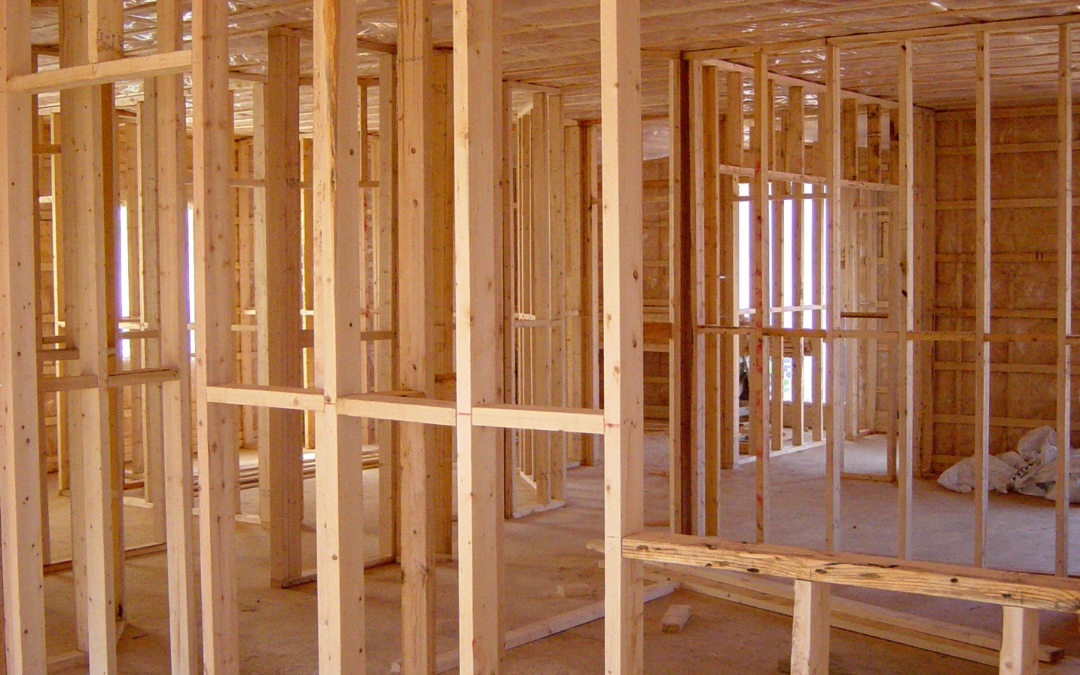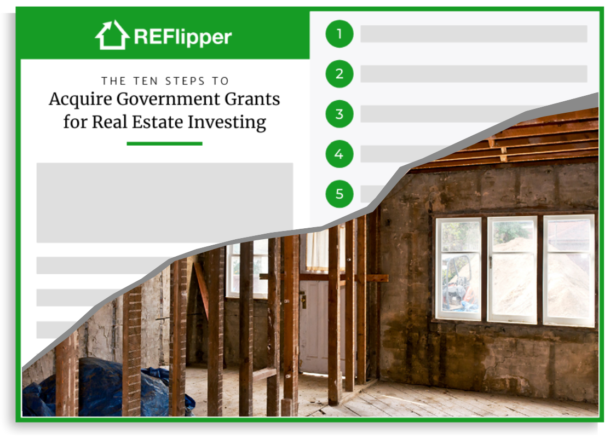Real estate developers can benefit from using federal real estate grants specifically designed to help them acquire, build, and/or renovate properties. These grants are provided for developers who increase housing options for low-income families, middle-income families, the elderly, and disabled people.
Federal grants make it easier for you to earn a profit on your real estate investments. When deciding which property you want to buy, consider the neighborhood, the median income in that area, the residents’ age range, and how much of your rent you want directly paid to you by the government.
5 Federal Grants for Real Estate Developers
#1 Section 811 Supportive Housing for Persons with Disabilities
The Supportive Housing for Persons with Disabilities grant helps developers create affordable housing for low-income, very low-income, and extremely low-income people with disabilities. Developers can use this grant to build or rehabilitate multi-family properties. There is no requirement to repay the grant if a low-income individual with a disability occupies the property for at least forty years.
Developers receive interest-free capital advances and operating subsidies to create and maintain housing. Also, the landlord receives the bulk of the rent and utility costs through the state-run Project Rental Assistance Contract (PRAC) program.
The renters pay 30% of their net income or 10% of their gross net income, and the federal government pays the balance of their rent via the 811 program subsidy. At least one person in each rental unit must have a recognized disability, and the family must meet all the other federal requirements for qualifying for affordable housing.
#2 Supportive Housing for the Elderly Program
The Supportive Housing for the Elderly grant program is designed to help developers create affordable housing for elderly people. Private non-profit developers who create secure, barrier-free and supportive housing for elderly people are eligible to participate in this program. The program’s goal is to allow the elderly to maintain the highest level of independence possible and live with dignity.
This kind of housing generally provides supportive services for its elderly residents. Supportive services include:
- Service coordinators
- Housekeeping assistance
- Personal assistance
- Transportation aid
- Health-related services
- Elderly-friendly physical infrastructure (e.g., grab rails, ramps, level entrances)
The cost of the supportive programs and construction of elderly-friendly spaces is covered by the program and other outside funding sources. Developers are expected to create housing infrastructure that supports onsite services at the property, too (e.g., communal dining areas, community social spaces).
The renters pay about 30% of their annual income for rent, and utilities and the balance is paid by the project rental assistance contract program, a federal program operated by state agencies. Families with a family member who is at least 62 years old or older and very low income can live there. Most tenants in this program are elderly women with an annual income of $5,000 to $15,000.
#3 Emergency Capital Repair Program
The Emergency Capital Repair grant program aims to give non-profit developers a one-time grant to do emergency capital repairs on property rented to elderly tenants. The emergency repair must be for things that are an immediate threat to the health, safety, and quality of life of the elderly tenants.
Emergency capital repair grants must be used for repairs that cannot be covered by the project’s operating budget and other resources, and where the tenants’ immediate near future continued occupancy of the property may be jeopardized by a delay in making the emergency repairs.
Developers are eligible for this grant if they are part of the following programs:
- Section 202 direct loan projects with or without Section 8 rental assistance
- Section 202 capital advance projects receiving rental assistance under their Project Rental Assistance Contract (PRAC)
- Section 515 rural housing projects receiving Section 8 rental assistance
- Section 221(d)(3) below-market interest mortgage
- Section 236 of the National Housing Act
- Projects receiving Section 8 project-based rental assistance designated primarily for occupancy by the elderly
Emergency Capital Repair Program grants can be used for:
- Existing major building and structural components in critical condition
- Repairs or replacements to existing mechanical equipment that are necessary for health and safety reasons.
- Purchase of high-efficiency heating and cooling systems (Energy Star)
Emergency Capital Repair Program grants cannot be used for:
- Deferred maintenance items
- Lead-based paint abatement
- Demolition and reconstruction activities
- Physical infrastructure improvements (e.g., installation of sprinkler systems, air conditioning)
#4 HOME Investment Partnerships Program
Grants from the HOME Investment Partnerships Program can be used to construct, purchase, or rehabilitate affordable rental housing. All HOME funds must be used for rental housing for low-income and very low-income families.
No less than 90% of the people living in HOME-assisted rental units or participants in the tenant-based rental assistance program must have annual incomes that are no more than 60% of area median income. The remaining HOME-assisted rental units or tenant-based rental assistance program participants must have annual incomes of no more than 80% of area median income.
HOME-assisted rental units must remain affordable for low-income families for a period of five to twenty years. The time period depends on the average amount of HOME funds spent on each unit and how the funds were spent.
HOME grants cannot be used to:
- Modernize public housing
- Provide tenant-based rental assistance under the Section 8 program
- Support operational costs of rental property
- Pay back taxes or fees on properties that are or will be assisted with HOME funds
- Provide non-federal matching funds for any other federal program
- Uses not authorized in statute or regulation
This program may be ideal for developers who want to construct, purchase, or rehabilitate housing and have mixed-income tenants.
#5 Housing Preservation Grants
Real estate developers who want to create more affordable housing in rural areas, places with 20,000 or fewer people, can use housing preservation grants. The funding can only be requested for investment properties occupied by low-income or very low-income families. For investors who want to invest in affordable housing on federally recognized tribal lands, this program provides grants for that too.
The grants can be used for:
- Installation and/or repair of sanitary water and waste disposal systems
- Energy conservation measures (e.g., insulation, combination screen-storm windows and doors)
- Repair or replacement of the heating system
- Electrical wiring
- Repair of or provision for structural supports and foundations
- Repair or replacement of the roof
- Replacement of severely deteriorated siding, porches, or stoops
- Alterations of the unit’s interior or exterior to provide greater accessibility for any handicapped person



